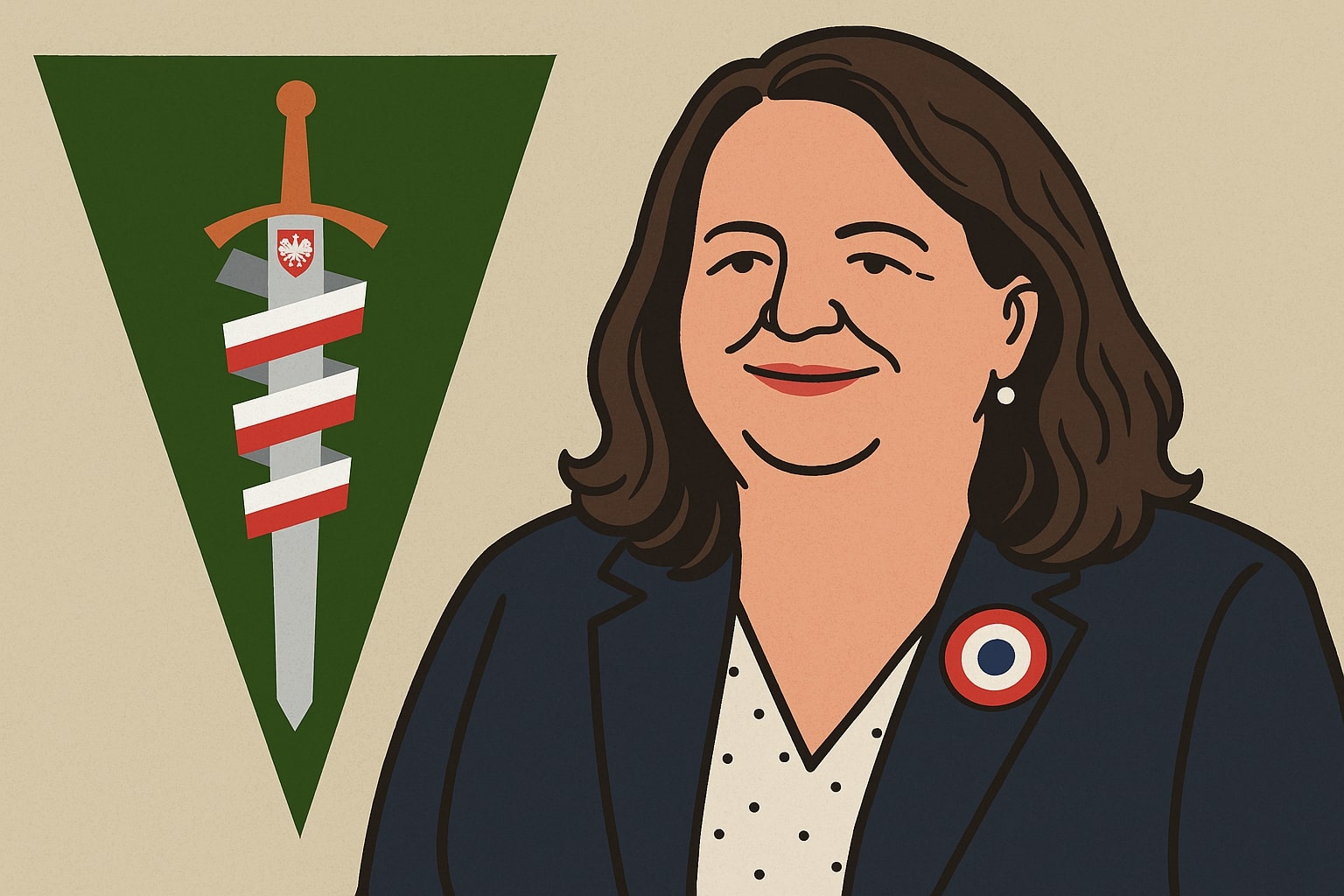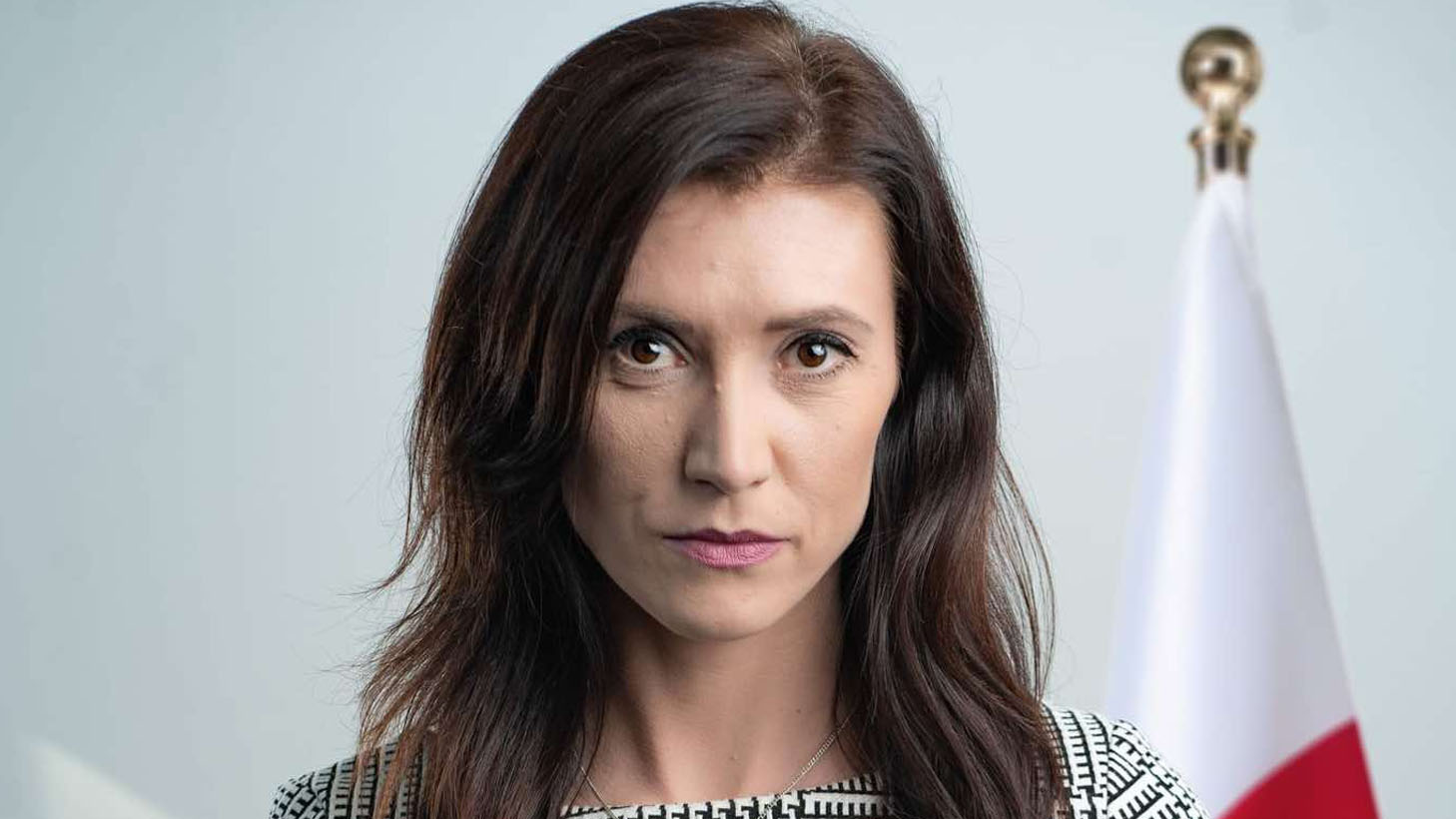The comments of any clergymen, including bishops, on the records of the final synod document, are ridiculous on many levels, as well as the paper itself," said editor Paweł Lisicki during the discussion on the latest PCh24 tv broadcast – "I, Catholic Extra".
The host of the program ed. Krystian Kratiuk pointed to 1 of the points of the final paper late completed the Synod about synodity. As he stressed, during the vote, 12 percent of the participants opposed him, making this 1 of the most "protested". It builds an analogy between synodality and liturgy (Holy Mass), citing the synaxis, or liturgical assembly present in the east Church.
"Although in various forms Jesus' promise of his presence where 2 or 3 are gathered in his name, is fulfilled in both cases. Synod assemblies celebrate Christ’s unity with his church through the action of the spirit. It is the spirit that assures the unity of Christ's body, both in the Eucharistic assembly and in the synod" says point 27 of the final document.
“Liturgy is listening to God’s word and responding to his covenant initiative. The Synod Assembly is besides listening to the same word that echoes both in the signs of time and in the hearts of the faithful, and the consequence of the congregation that discerns God's will to accomplish it. Deepening the bond between liturgy and synodality will aid all Christian communities in the diversity of their cultures and traditions to adopt celebration styles that will uncover the face of the synod church," the Synod continued.
Does this mean the announcement of another liturgical revolution, this time “democratic”?
– We are dealing with a transitional paper in which there are actually no concrete, definitive, harsh wordings, and we are open to any future solutions. Very frequently the synod fathers said that we inactive request to know, we inactive request to discuss that it is not time for any changes, but this time will come said Grzegorz Górny.
– Priest James Martin, a well-known homolobbyist, said that the point was to prepare the ground for future changes. So that's why we request this Synod that ended, to see as part of specified a wider process of synodity, of specified permanent synodity. This is the fulfillment of what Cardinal Carlo Maria Martini proposed years ago, who advocated church management through synods “On the Web,” said the journalist.
– He said that the most crucial task of the Church is to make 200 years of hold which the Church has towards the world, due to the fact that it did not accept the achievements of enlightenment and now these achievements of enlightenment should be applied to the doctrine and practice of the Church. This cannot be done through councils, due to the fact that they are besides large events, which are convened erstwhile in a while, but can be done through synods, or actually specified a permanent convening synod that will change the peculiar elements of the teaching of the Church. Francis, who very frequently quotes Martini, amongst others, this conviction about 200 years of hold of the Church towards the planet and the request to catch up with the world, he is now applying this concept of permanent synodality to the life of the Church. Grzegorz Górny pointed out.
– Cardinal Roche, the prefect of the Dicastery for God's Culture, has repeatedly stressed that the liturgical improvement has not yet been implemented in the Church, said Cardinal Ryś ed. – reminded Krystian Kratiuk of the same question to Paweł Lisicki. – The liturgical improvement is about the active participation of everyone in the liturgy. If the liturgy has, yes, understood the language, if the priest was turned face-to-face to the assembly, if fresh books were issued, and yet the liturgy inactive looks that it is—notice—the theatre of 1 actor, that means that there is simply a priest and that is where the assembly of people active in the Church ends, that means that the improvement did not happen. What will it be, Mr. Editor? – the host of the program asked.
– I don't know what it's going to be, you gotta ask Cardinal Rysia, not me— The editor of the weekly “To Things” replied. – I think, to be honest, that these are all ridiculous statements together, as well as this document, which was quoted by your editor – by the way [unreasonable – ed.] on all level. What does the sonax gotta do with synodality? It's that you start with "son-," right? – was ironic by Paweł Lisicki.
– All right, well, that's the son-agogue, right? And the point is that the son-ax with the son-deity and son-agoga are unity, right? And with my son – pointed to the false logic behind the false analogy.
– After all, these are complete “cocouplings”, this is simply a frightening level of absurdity which is poured out of this document. What has a common synodality and a form of what we have been dealing with today, it has nothing to do with synodality, understood as the Church has always understood. The synod was a gathering of bishops advising the pope or gathering in a given place and dealing mainly with management or administrative issues in the life of the Church, where those who manage them, or bishops (episcopos) and made any joint decisions, and so much – reminded the publicist.
Paweł Lisicki recalled that the synaxis was besides referred to in the definition of Holy Mass in the 1970 Mass of Pius XII. There were the words of the Lord Jesus, who said that "where 2 or 3 are gathered together in My name, there I am among them" (Mt 18:20). – Only that in no way is this the definition of the Holy Mass, which is repeated in a bloodless manner, a sacrifice offered on Golgoth; where the priest performs as the 1 who is “alter Christus” or in the name of Christ, and makes the bloodless sacrifice – emphasized the publicist.
– In cultural terms, this message by Cardinal Rysia here is highly absurd. Indeed, the image of the Church is – as we can see – a mass escape or mass désintéressement. But what are these people missing? Why is this escape so big? He was wondering.
In the belief of the author and the publicist, the answer is primarily the deficiency of experience of sacrilege and eternity. This is taken from the fact of the progressive secularization of the Church. The liturgy besides "stopped giving people on a mass scale the experience that they are dealing with the eternal; that they experience that they are sharing in the cult of eternal God."
– Everything is directed at man, everything is focused on the assembly, everything is to be based on activating people, as if they wanted to be highly active there. Of course, there is simply a group of active people, while the general public escapes from it, due to the fact that what is most crucial – and this is the full message of Christian wisdom – is not about physical activity, it is always about contemplation, about spirit activity “To Things” said the editor.
– And where there is spirit activity, there is simply a request for concentration, silence, separation and clear focus and focus on what is most important; and what is most crucial in liturgy is God. But this God of liturgy has been described perfectly in many passages of the fresh Testament. For example, it is perfectly described by the beginning of James ’ letter, erstwhile he speaks of the “Father of the world” in which there is no change or shadow of variation. This is the God to which the liturgy should aim, and which it should show without a shadow of variation, without change, without entanglement in what is inactive going on, variables, erstwhile specified and erstwhile again – he emphasized.
As indicated by the guest of the ‘I, Catholic Extra’ programme, the communicative of the alleged request to adapt the liturgy goes precisely the other way. The greater share of the secular ones carries with it a focus on our own experiences, which are "earthly, temporal and variable."
– So as I say, in all respect it's any unfortunate communicative for Catholics especially, due to the fact that it's a complete departure with alleged time signs said Paweł Lisicki. – The sign of time is universal apostasy, not that people are looking for a more active form of participation in the Holy Mass, due to the fact that [it is supposedly] like a ‘the theatre of 1 actor’.
– (...) Let us leave the Mass to those who love it and who think that it is not the “theatre of 1 actor”, but it is the worship of the Lord God and the Holy Trinity. Let us leave it to specified people, not those who are tired of having to do this regular “harbour” in this “theatre” He appealed.
Source: PCh24TV
RoM


















